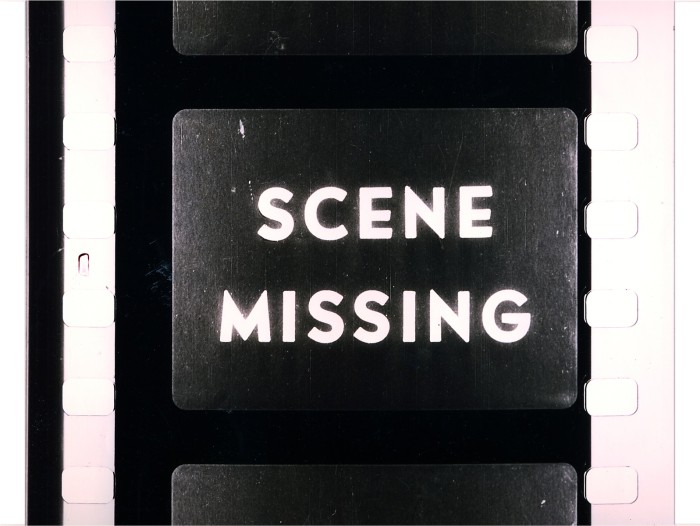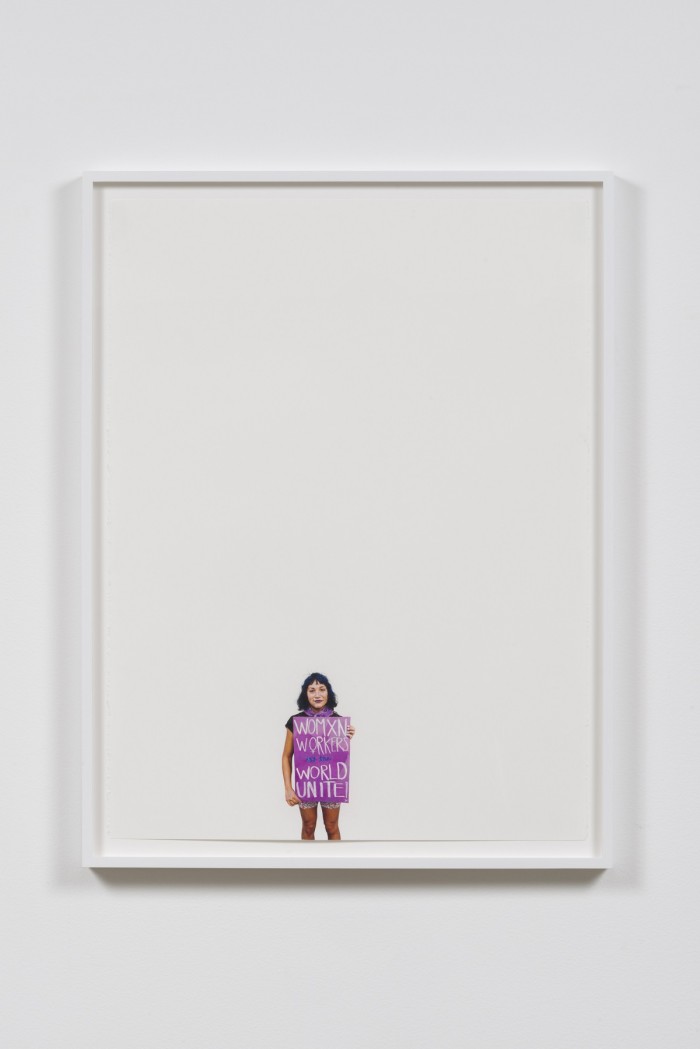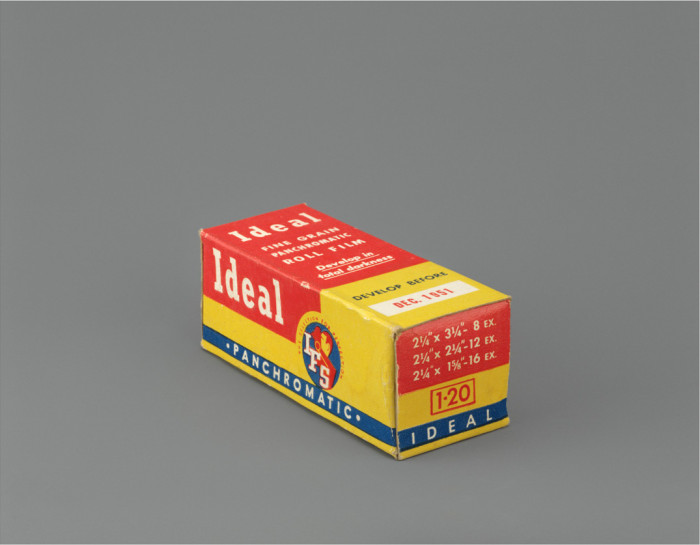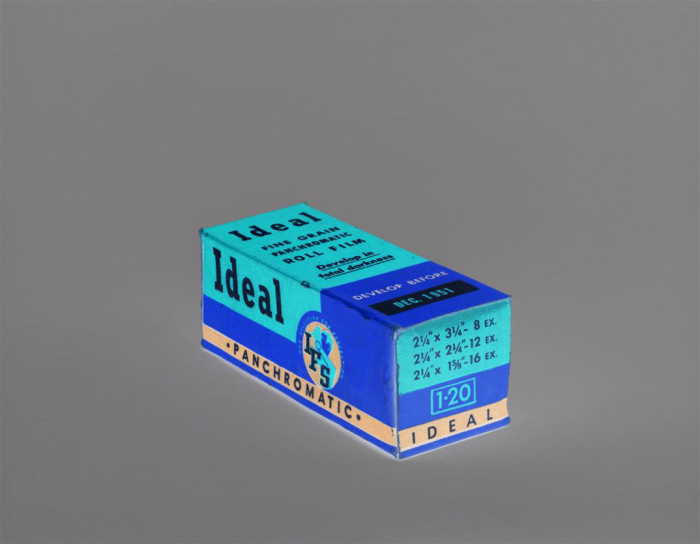
06.02.2017
The American artist and the Swiss curator discuss the crisis of democracy,
celebrity culture in the US, and social media as an outlet for resistance.

In his work, the artist Morgan Fisher, has been preoccupied with the problem of the expressive authorial voice in a work of art, an exemplary problem of industrial production. This harks back to his background in the film industry, but even more so, to the approaches of avant-garde film and art of the late sixties. His contributions to film date back to that time, and those to painting to the late nineties. Both remain significant and influential to generations of artists. In recent years, he established another public voice, which is in fact quite expressive. He’s been voicing his opinions on US politics and media on Facebook. His voice echoes his determination and position. More than once, he uttered “J’accuse”, in one way or another. Our writer talked with Morgan Fisher about his engagement and the state of things.
Tenzing Barshee: From reading your comments on social media, I assume that you are a close observer of both the political landscape in the US as well as its representation in the media.
Morgan Fisher: I could be a much closer and more active one. I admire what Andrea Bowers is doing. She has made political activism a part of her artistic practice in a way that I find extremely powerful. The work doesn’t aestheticize the means of such activism, it simply presents it for what it is: leaflets supporting strikers, leaflets supporting efforts to unionize. This direct presentation in a gallery space is quite shocking, in the best possible sense. There are photographs of demonstrators, the majority of which are people of color. And she herself is out there with the protesters. She went to Standing Rock. I didn’t. But about the strategy of not aestheticizing, I once heard Allan Sekula, for whose work I have great admiration, criticize Leon Golub for doing just that. A stylized painting of police beating someone up doesn’t add to our knowledge or make us see it in a way that tells us what we can do about it.

TB: What is the extent of your engagement with politicians and the media?
MF: I have on occasion written to my senators and to my representative in Congress. I’m just a plain old liberal and so is my congressperson, so I have fewer occasions to write to him. But my senators, although they are both Democrats, are another story. I can’t remember what I last wrote to them about, but I think it had to do with urging them to release the torture report. Besides sending letters to the editors of the Times and to its public editor, a while ago I sent two essays to the editor of its op-ed page. They’ve never printed anything I’ve sent them. Lately I have made comments about specific articles in the online edition of the paper. I put one up just today.
TB: When did you start writing to the New York Times?
MF: It was outrage, or at least great anger, that was the beginning of my writing letters, and it happened relatively recently, just before the Iraq war. It was obvious that the United States was going to invade Iraq, thus committing a war crime, and if my memory is correct the Times had nothing to say about this; not about whether or not it was a good idea or justified, let alone that invading Iraq would be a war crime. The Times was not in the least skeptical about the administration’s story that Iraq had weapons of mass destruction. So my outrage was twofold: at the course the US was about to take, and the silence of the Times about that course, silence that I will call complicity. As we now understand, the war gave rise to ISIS and all that has ensued from it, including the war in Syria and mass migration from the Middle East to Turkey and Europe, which in turn aided the rise of the extreme right in Europe. It’s been an utter disaster of ever-widening consequence, and it was the doing of only a few people, albeit with the complicity of a passive and credulous Congress and press. Remember the contempt that members of the Congress heaped on France for not joining the US and Great Britain in the war? France was ridiculed as being a part of “old Europe,” that is, irrelevant, and the cafeteria in the House of Representatives changed the name of French fries to Freedom fries. Bush and Cheney and Wolfowitz and all the others are war criminals, but they remain unpunished.

TB: How did your exchange with the Times continue?
MF: Recently there was an op-ed piece in the Times that so enraged me that I wrote a comment that I knew was longer than what the site would accept but I couldn’t help myself. The author is associated with a right-wing think tank. The piece was about how it’s a good thing that Trump is scaring the world, on the principle that scaring others is the only way for the US to fulfill its destiny as the world’s sole superpower, that is, to push people around. Some of the people who are scared are the European allies of the US, who don’t know whether or not the US will fulfill its obligations under NATO to protect them from Putin. Besides it being too long, by the time I finished it, the deadline for submitting comments had passed, so I put it up on Facebook. I’ve put up other things I’ve written on Facebook, chiefly letters to the editors of the Times. In its limited way, it makes them public, and of course I hope it encourages others to take a more active part in things, just as posts by others, and there are many of them, encourage me to be more active.
TB: Then you denounced the paper for the language they choose.
MF: It was disgraceful that the Times used the phrase “enhanced interrogation” instead of calling it torture, another instance of its swallowing the line of those in power. I was one of many people who wrote to them about this. I recall that the public editor dismissed objections to the phrase, as if laughingly correcting the error of a naïve child, by saying that to call it torture would be to take sides, as if calling it enhanced interrogation did not take sides. Enough people wrote to complain that the Times finally started calling it torture, but it should never have called it enhanced interrogation in the first place. A more recent example of something similar is the Times’s using the word “alt-right” straight, so to speak, without quotation marks or other qualifiers to let the reader know that it is a term that white supremacists and other extremists have given themselves to hide their true nature. Even the Associated Press tells its writers not to use the word straight but to put it in quotes or add a qualifier like “so-called,” but in the meantime the Times says writers have discretion in how they use the word, which is a complete scandal.

TB: Is there a general disillusionment with the traditional media?
MF: It is a shock to remember that only two or three newspapers of serious standing in the US endorsed Trump, while all of the others, and there were scores of them, endorsed Hillary, some explicitly speaking out against Trump, and yet he was elected. The competing realities presented by alternative news sources recalls Hannah Arendt’s remark, which I learned about on Facebook, that those prone to accepting totalitarianism are those for whom the distinctions between fact and fiction, true and false, no longer exist. We first had a whiff of this new state of affairs, questioning what is fact, what is true, during the administration of the second Bush, when someone high up in his circle said something to the effect that facts don’t matter anymore, people in his administration determine what reality is.
TB: But then there is social media.
MF: Besides putting up on Facebook things that I have written to the Times, I comment on what others have put up. Generally, what Robert Reich, who was Clinton’s Secretary of Labor for four years, has to say is important, although I don’t agree with everything he says. For example, assuming that Clinton would win the election, he had suggested that she appoint Obama to the Supreme Court. I strongly disagreed, saying that Obama’s refusal to obey the international treaty that requires him to prosecute the torturers shows that he does not believe in the rule of law, as I had said to those who had urged this earlier. I also wrote to Obama to urge him to follow the law. I have found Facebook to be a very helpful forum for political matters. From Facebook I learned about Timothy Snyder’s twenty points for defending democracy under Trump and I was reminded of Hannah Arendt’s book The Origins of Totalitarianism, the source of the passage I summarized above, and which I had never read. I should read it, and so should everyone.

TB: In your writing you often choose an accusatory tone, is this something that drives your public opinion?
MF: Being enraged, or angry, is a great motivator, and it readily helps to organize my thinking. I happened to read The Road to Wigan Pier a while ago, and it’s clear that part of what prompted George Orwell to write it is outrage, although it’s complicated by the fact that he is outraged by the resignation of the people whose suffering outrages him, such that his outrage at their resignation turns into scorn for them. He is very hard on the woebegone couple who run the tea and tripe shop for their knowing that they are miserable but feeling there is nothing they can do to try to change their situation. And he’s also outraged by the conduct in daily life of the socialists who he is telling us are England’s only hope. If only those socialists would give up their eccentric way of dressing that makes them ridiculous in the eyes of others and turns respectable people against them. Turning outrage to constructive ends is a model we should all aspire to. Outrage alone gives you something to say, and having something to say is really all you need.
TB: Can you trace your political engagement to your position as a younger man?
MF: In a word, no. When I was younger I was quiet, much more than I should have been. When I was in college I wrote a letter to a national weekly magazine ridiculing Barry Goldwater, who was a five-term United States Senator from Arizona and the Republican Party’s nominee for President of the United States in the 1964 election, and I got hate mail. Only a few letters, but I was shocked that I got any at all, which was very naïve of me. That had an effect on me. A few years later, I was angry about the war in Vietnam, even angrier than I was about the invasion of Iraq, but it took me longer than it should have to come to that view, and I did not express it publicly. Going back further, I was a kid during the McCarthy period, but my parents had nothing to say about it. They were suburban Democrats and ran no risk whatsoever by being harmed by McCarthyism. You’d think the safety of their situation would have let them explain things but maybe it was the other way around, if they had been at risk maybe they would have talked to me about it. The town where I grew up was overwhelmingly Republican, but old-fashioned Republicanism, of a kind that can be called respectable, last represented by someone like Nelson Rockefeller, not what the party has become. But my parents knew even in the early 1950s that Nixon was a crook, I think from his Red-baiting campaign for the US Senate in 1950. It’s worth looking up. What he did is really appalling. That’s when he got the nickname Tricky Dick. In relation to his conduct then, none of the bad things he did in his later political life were a surprise.

TB: How does your political opinion reverberate with the current state of “difficulty” (to cite Terremoto’s editorial) that many societies are facing today?
MF: Earlier today I read an interview with Noam Chomsky published in a Sri Lankan newspaper on December 14. He talked about the role of scapegoating in the rise of reaction that is occurring today. He said, “[T]he typical history of scapegoating is to pick vulnerable people and find something that is not totally false about them —because you have to have some element of truth— and then build it up into a colossus which is about to overcome you.” Trump certainly found lots of groups to scapegoat, for instance illegal immigrants, and the people who felt that they are not getting their share of the American dream because of the groups Trump scapegoated voted for him. But of course Trump and people in other countries who scapegoat certainly have no interest in addressing the concerns of the aggrieved who voted for them, they are interested only in exploiting those grievances to serve their own self-interest and the interest of a powerful and rich elite. That’s Trump’s program: tax cuts for the rich, the elimination of the estate tax, which will create a permanent moneyed elite that will be able to buy elections to further secure its hold on power, of course at the expense of everybody else, the elimination of Obamacare, deportation of illegal immigrants on a massive scale, which we can hope is such a fantasy that it will be beyond his power to make it happen. If Trump has his way, he will be able to set the Supreme Court in a direction that will take decades to recover from, if that will ever even still be possible. He and Ryan, the speaker of the House of Representatives, want to send America back to the age of robber baron capitalism. But the radical changes the Republicans could make might help reverse the decline of unions or might otherwise energize the left to organize and fight back. The shocking thing is how few people voted, as if there were nothing at stake or as if there were no difference between Trump and Clinton. An article in the Times quoted someone as saying that he didn’t vote because neither candidate said they would do something for him. I could hardly believe it. And there were young women who said they couldn’t relate to Clinton. For these reasons among many others that must be equally irrational we have elected a blustering ignorant racist misogynist who has never held elective office. Part of the problem must be that too many people seem to think of political campaigns and how they are covered as a form of entertainment, without substance, which I guess comes from celebrity culture. Chomsky said something very powerful but chilling: “As long as the general population is passive, apathetic, diverted to consumerism or hatred of the vulnerable, then the powerful can do as they please, and those who survive will be left to contemplate the outcome.” Celebrity culture is a form of consumerism, the consumption of personalities. That is the situation we are in, or on the verge of if we are not within it already, and part of how the media treats Trump is as if he were merely a celebrity, not much different than, say, Taylor Swift, instead of as someone about to become the most powerful person in the world and of whom we should all be very afraid. So the question is what to do to get people to care, to realize that if they don’t take part in politics their lives will only get worse, to try to make the changes that will overcome voter suppression, to get people to register to vote, to get people to vote. If Obama is looking for something to do after he leaves office, that effort is something he could lead. I know this is all perfectly obvious, but I do want to say these things.


TB: How does this culminate in the current crisis of democracy?
MF: What you call the current crisis of democracy, in this country at least, is owed in large part to indifference to the crucial importance of being more informed about the issues and taking part in political life. It’s partly a matter of politics being seen as an extension of celebrity culture and partly a matter of scapegoating. Is it too much to say that these two things together elected Trump? As has been noted by others, it is absolutely shocking how the media coverage of the election paid attention to relative trivialities and not to the differences in what Trump and Clinton stood for. I don’t have a television, so I don’t know what Clinton said on TV, but in the Times and in social media there was little that I can recall about what she stood for, beyond her being a Democrat. I sure knew what Sanders stood for, even though he didn’t get the attention that Clinton did. It’s beyond shocking that Trump has installed Steve Bannon, who is a mouthpiece for white supremacism, as his advisor about strategy, a position that is not subject to confirmation. One scenario is that Trump with the help of Republicans in Congress will do so much damage to essential American institutions, such as Medicare, Social Security, progressive taxation, and the right to vote, not to mention Obamacare, that the electorate will react and return at least the Senate to Democratic control two years hence. I just hope that in the meantime Trump and the Republican majorities don’t destroy America, not to mention other parts of the world, or the world itself. But perhaps we won’t have to wait two years. There is a chance that there are enough Republicans in the Senate who are principled enough and conscientious enough to understand how dangerous Trump is to crucial American institutions and to the world order that they will refuse to vote with other Republicans to implement his programs. That will take real political courage, but I would like to think that it’s possible.

TB: How do you compare our present day to previous national and global challenges that you’ve experienced?
MF: The challenges I’ve lived through have been finite, by which I mean they’ve ended, for example the Cuban missile crisis, although the root of that crisis and others that have come and gone is American exceptionalism. This is America’s view of itself that it is not bound by the same standards of behavior as other countries. Of course it is only America’s being an uncontested superpower that makes this view possible, which its power reinforces. But there have been crises for other reasons that have had long-lasting consequences, for example the Red scare at the end of the forties into the 1950s, which gave us the blacklist in the entertainment industry and McCarthyism. And there are continuing conditions that we should call crises, and they’re getting more acute. As Chomsky has observed, over the years there have been very close calls with nuclear weapons. There have been false alarms, some, I believe, resulting in calls to launch that were disobeyed only because someone was skeptical about the reliability of the alarm. And bombs have been mislaid due to accidents. It’s a matter of luck that there have been no disasters, but the world’s luck can’t hold out forever, and the risk will only increase with the increase of the number of countries with nuclear capability, not to mention the growing likelihood of rogue actors. The chances of controlling, let alone reducing, the spread of nuclear arms appears, I am sorry to say, very remote, not a cheerful picture. And, again turning to Chomsky, there’s climate change, which ought to be called climate catastrophe. Trump’s view of it, that it’s a hoax, is a scandal, but it does three things all at once. It scapegoats the Chinese, it signals to the rich that he, like them, is committed to free-market capitalism, to the point of standing by while the fossil fuel industry wreaks devastation on the planet, and it signals to those of his supporters who are not rich, who are less educated or are evangelicals, that, like them, he is anti-elitist, anti-education, anti-knowledge, that is, against knowledge based on facts. Even if Trump committed the US to fighting climate catastrophe and trying to provide leadership for other countries to do so, it’s probably already too late, that the chances of action on a global scale that will be able to slow it down, let alone halt it, are remote. So there will be mass extinctions, upheavals in agriculture, and as coastal areas are flooded, for example in Bangladesh, there will be climate refugees, creating a humanitarian catastrophe. Already there is migration from sub-Saharan Africa to Europe that is related to climate catastrophe.
Comments
There are no coments available.